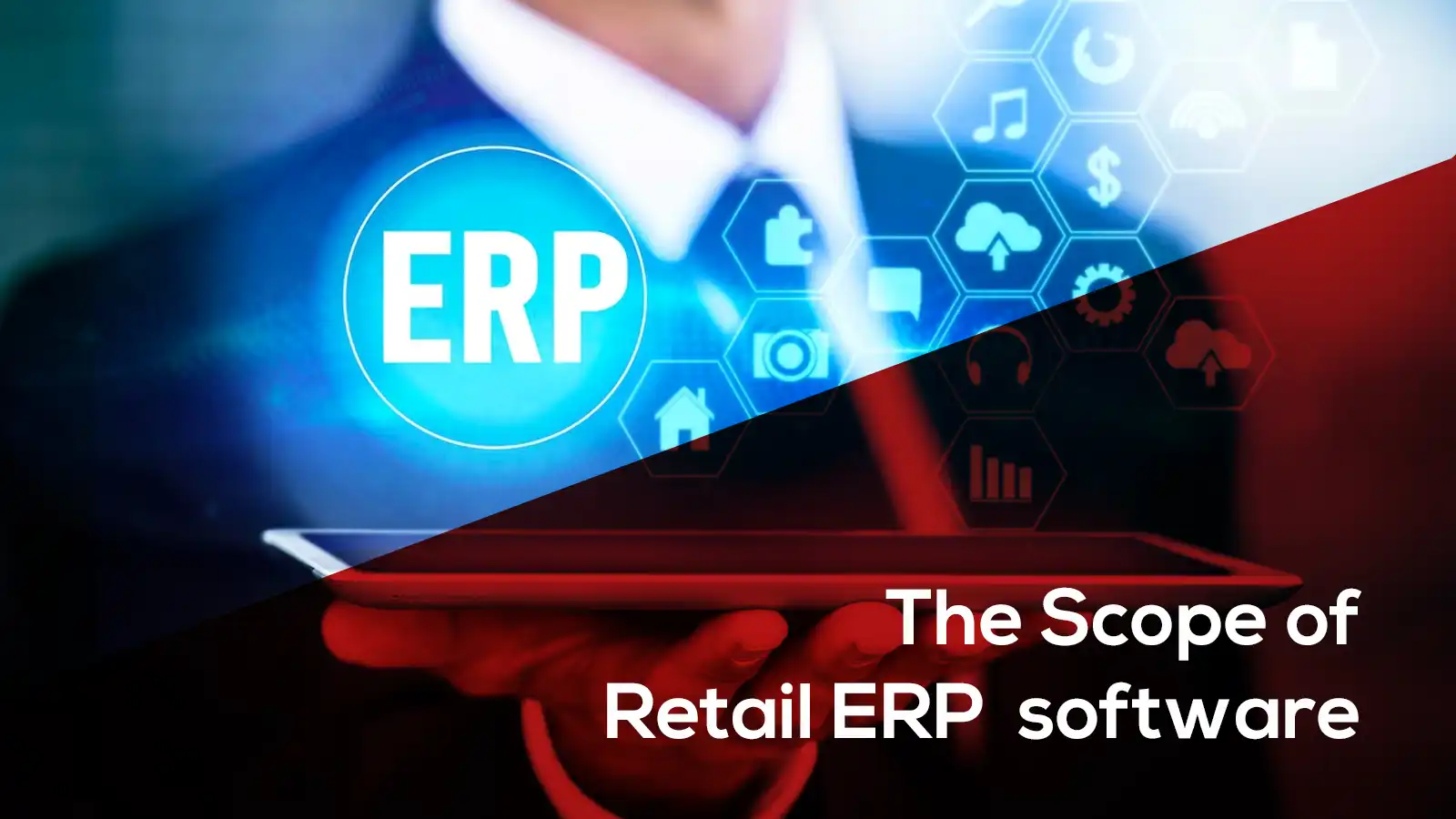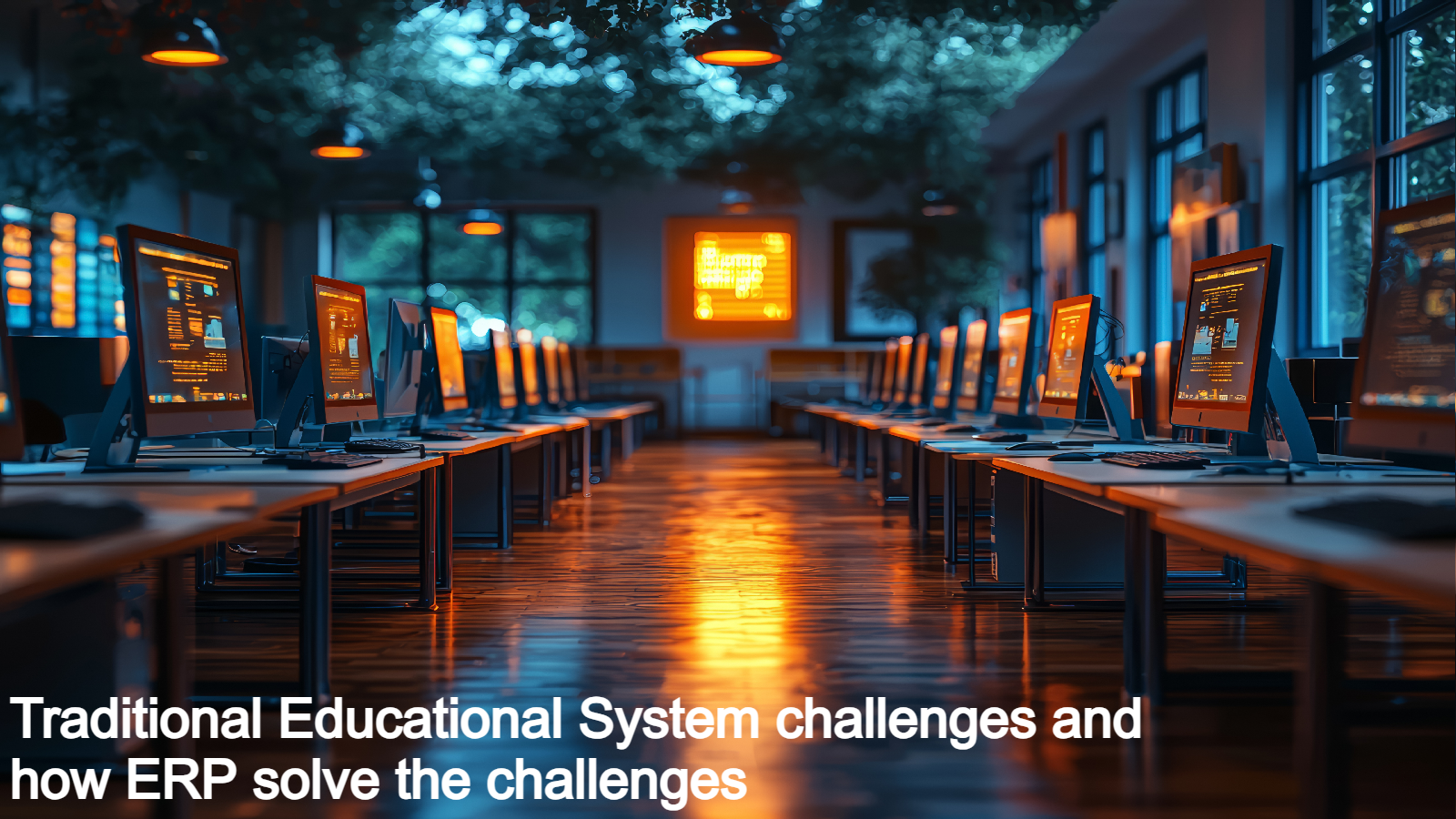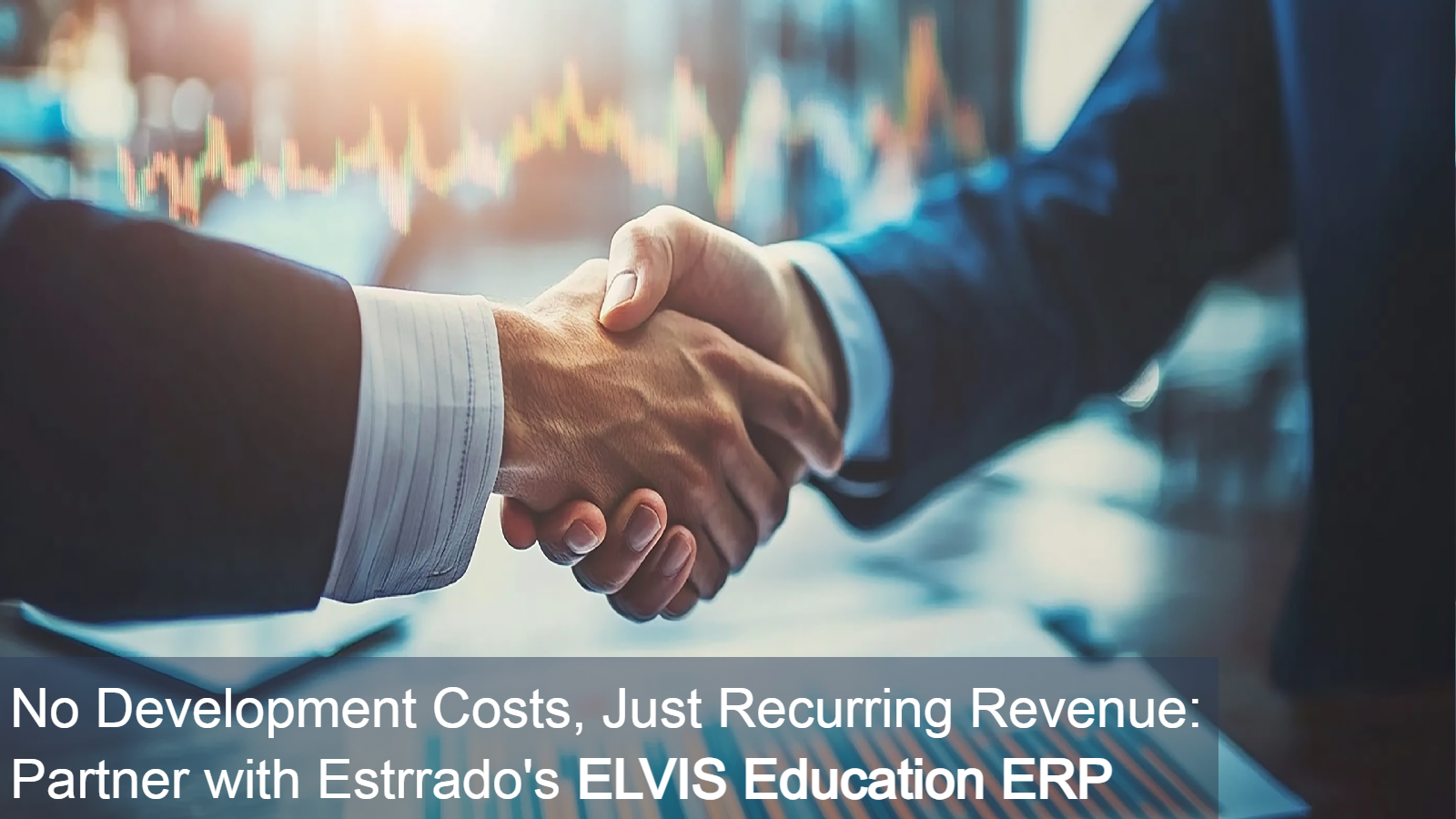Introduction
In the constantly evolving world of retail, where every moment counts and every decision can impact the bottom line, the role of technology has become more crucial than ever. Among the variety of tools available, Enterprise Resource Planning (ERP) software stands out as a game-changer, streamlining operations and fostering efficiency.
In this blog post, we delve into the scope of Retail ERP software, examining its current impact and looking at the future trends that are set to revolutionize the retail landscape.
Understanding the Scope of Retail ERP Software
Integrated Operations
Retail ERP software serves as a centralized platform, seamlessly integrating various business processes. From inventory management and order processing to customer relationship management (CRM), ERP ensures that all aspects of retail operations are interconnected. This integration enhances communication across departments, breaking down silos and fostering a complete view of the business.
Efficient Inventory Management
Inventory is the core of retail, and mismanagement can lead to significant losses. Retail ERP systems employ advanced algorithms to optimize inventory levels, preventing overstock or stockouts. Real-time tracking and analytics empower retailers to make informed decisions, minimizing holding costs and maximizing profitability.
Enhanced Customer Experience
In the era of customer-centricity, delivering a seamless and personalized experience is vital. Retail ERP software includes robust CRM modules that enable businesses to understand customer preferences, track buying patterns, and provide personalized promotions. This not only enhances customer satisfaction but also fosters loyalty.
Streamlined Supply Chain
A responsive and agile supply chain is essential for retail success. ERP software extends its reach beyond the storefront, integrating supply chain processes. From supplier management to demand forecasting, retailers can optimize their supply chains, ensuring products reach the shelves at the right time and cost.
Data-Driven Decision Making
The abundance of data generated in the retail environment can be overwhelming. Retail ERP systems, equipped with advanced analytics and reporting tools, convert raw data into actionable insights. Retailers can make informed decisions based on real-time data, improving overall business skillfulness.
Future Trends in Retail ERP Software
Artificial Intelligence (AI) Integration
The future of Retail ERP software lies in the seamless integration of AI. Machine learning algorithms will empower retailers to predict consumer behavior, optimize pricing strategies, and automate routine tasks. This not only enhances efficiency but also allows retailers to stay ahead of market trends.
Cloud-Based Solutions
The shift towards cloud-based ERP solutions is accelerating. Cloud-based systems offer scalability, flexibility, and cost-effectiveness. Retailers can access their ERP systems from anywhere, promoting collaboration and adaptability in an increasingly digital world.
Blockchain for Transparency
As consumers demand greater transparency in the supply chain, blockchain technology is set to play a pivotal role. Retail ERP systems will leverage blockchain to ensure authenticity and accountability throughout the entire supply chain, from manufacturing to the end consumer.
Omnichannel Integration
With the rise of omnichannel retailing, ERP systems will evolve to seamlessly integrate online and offline channels. A unified view of inventory, customer data, and order fulfillment across all channels will become imperative for retailers aiming to provide a consistent and integrated shopping experience.
Focus on Sustainability
As environmental concerns continue to gain prominence, future ERP systems will incorporate sustainability modules. Retailers will be able to track and reduce their carbon footprint, monitor eco-friendly sourcing practices, and align their operations with sustainable business practices.
Conclusion
The scope of Retail ERP software is vast and ever-expanding, encompassing integrated operations, efficient inventory management, enhanced customer experiences, streamlined supply chains, and data-driven decision-making. Looking ahead, the integration of AI, cloud-based solutions, blockchain, omnichannel capabilities, and sustainability features will define the future of Retail ERP, ensuring that businesses remain agile and competitive in an evolving market. As retailers embrace these trends, they will not only survive but thrive in the dynamic world of retail.
Frequently Asked Questions (FAQs) Scope of Retail ERP Software
What is Retail ERP software, and how does it differ from traditional retail management systems?
Retail ERP (Enterprise Resource Planning) software is a comprehensive solution designed to streamline and integrate various business processes in the retail industry. Unlike traditional retail management systems, ERP offers a centralized platform that connects diverse functions, including inventory management, order processing, customer relationship management, and more. It provides a holistic view of the business, fostering efficiency and collaboration across departments.
How does Retail ERP software contribute to enhanced customer experiences?
Retail ERP software includes robust Customer Relationship Management (CRM) modules that capture and analyze customer data. This enables retailers to understand preferences, track buying patterns, and offer personalized promotions. By providing a seamless and personalized experience, ERP contributes to increased customer satisfaction and loyalty.
What role does data-driven decision-making play in Retail ERP software?
Retail ERP systems leverage advanced analytics and reporting tools to convert raw data into actionable insights. This empowers retailers to make informed decisions based on real-time data. By utilizing data-driven decision-making, businesses enhance agility, optimize processes, and stay ahead of market trends.
Can Retail ERP software adapt to the evolving trends in the retail industry?
Yes, Retail ERP software is designed to evolve with the changing landscape of the retail industry. Future trends, such as the integration of Artificial Intelligence (AI), cloud-based solutions, blockchain, omni-channel capabilities, and sustainability features, are being incorporated into ERP systems. This ensures that businesses using ERP software can adapt and thrive in dynamic market conditions.
How does Retail ERP software address inventory management challenges in the retail sector?
Retail ERP software employs advanced algorithms to optimize inventory levels. Real-time tracking and analytics help prevent overstock or stockouts, minimizing holding costs and maximizing profitability. The system provides a centralized view of inventory, enabling efficient management and strategic decision-making.
What are the future trends in Retail ERP software, and how do they impact businesses?
Future trends in Retail ERP software include the integration of Artificial Intelligence (AI) for predictive analytics, the adoption of cloud-based solutions for scalability, the incorporation of blockchain for supply chain transparency, omnichannel integration for a unified shopping experience, and a focus on sustainability. These trends empower businesses to stay competitive, agile, and aligned with emerging market demands.
Is there a shift towards cloud-based Retail ERP solutions, and what benefits do they offer?
Yes, there is a noticeable shift towards cloud-based Retail ERP solutions. Cloud-based systems offer scalability, flexibility, and cost-effectiveness. Businesses can access their ERP systems from anywhere, promoting collaboration and adaptability in an increasingly digital world. Cloud-based solutions also reduce infrastructure costs and facilitate seamless updates and maintenance.
How does Retail ERP software contribute to supply chain optimization?
Retail ERP software extends its reach beyond the storefront to integrate supply chain processes. From supplier management to demand forecasting, ERP optimizes supply chains, ensuring products reach the shelves at the right time and cost. This streamlining of the supply chain enhances efficiency and responsiveness.
Can Retail ERP software be customized to meet the specific needs of a business?
Yes, many Retail ERP solutions offer customization options to meet the specific needs and workflows of a business. Tailoring the system ensures that it aligns with the unique requirements and processes of the retail operation, providing a more personalized and effective solution.
How can Retail ERP software contribute to sustainability in the retail industry?
Retail ERP software can contribute to sustainability by incorporating modules that track and reduce the carbon footprint, monitor eco-friendly sourcing practices, and align operations with sustainable business practices. This enables retailers to make environmentally conscious decisions and meet the growing demand for sustainable and ethical business practices in the retail sector.








